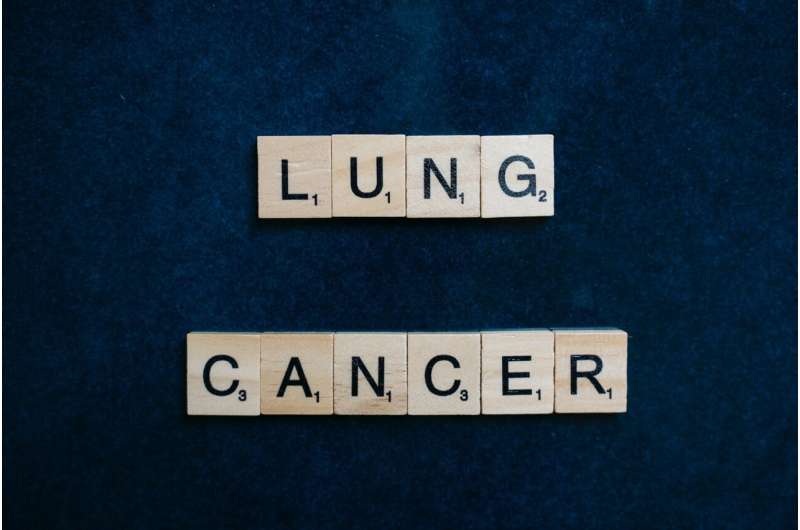Combination of Ivonescimab and Chemotherapy Enhances Progression-Free Survival in EGFR-Positive NSCLC Patients

A groundbreaking Phase III trial shows that combining ivonescimab with chemotherapy significantly prolongs progression-free survival in patients with EGFR-mutant NSCLC, including those with brain metastases, offering new hope for improved lung cancer treatment.
A recent clinical trial has demonstrated that adding ivonescimab—an innovative bispecific antibody targeting both PD-1 and VEGF—to standard chemotherapy significantly extends progression-free survival (PFS) in patients diagnosed with advanced non-small cell lung cancer (NSCLC) harboring EGFR mutations. This finding is particularly relevant for patients whose disease has progressed following treatment with third-generation EGFR tyrosine kinase inhibitors (TKIs).
The study, known as the Phase III HARMONi trial, was presented by researcher Jonathan Goldman from UCLA Health at the 2025 World Conference on Lung Cancer organized by the International Association for the Study of Lung Cancer (IASLC). The trial involved 438 participants from around the globe, with a median age of 62 years. About a quarter of these patients had brain metastases at the start of the study.
Participants were randomized to receive either ivonescimab (20 mg/kg) combined with pemetrexed and carboplatin, or a placebo with the same chemotherapy regimen, over four cycles, followed by maintenance therapy. The primary outcome revealed that the addition of ivonescimab reduced the risk of disease progression or death by nearly half compared to chemotherapy alone (hazard ratio 0.52; P<0.001). Median PFS was notably longer in the ivonescimab group at 6.8 months versus 4.4 months in the control group.
Subgroup analyses indicated that the benefits of ivonescimab were consistent across different patient groups, including those with existing brain metastases and across different geographic regions, such as Western countries. The final overall survival analysis showed a trend favoring ivonescimab, with median overall survival of 16.8 months compared to 14.0 months for chemotherapy alone, approaching statistical significance.
The safety profile of ivonescimab was manageable; however, higher rates of grade 3 or higher adverse events were observed, mainly laboratory abnormalities and VEGF-related events like hypertension and proteinuria, which were reversible. Treatment-related deaths were rare.
Dr. Goldman highlighted that "the addition of ivonescimab offers a meaningful clinical benefit by significantly delaying disease progression while maintaining an acceptable safety profile, benefits that were observed regardless of brain metastasis status or geographic location." These positive results suggest that ivonescimab combined with chemotherapy could become an important treatment option for this challenging patient population.
Stay Updated with Mia's Feed
Get the latest health & wellness insights delivered straight to your inbox.
Related Articles
West Nile Virus Alert: Elevated Risk in Boston and Eastern Massachusetts
Massachusetts has raised the West Nile Virus risk to high across Boston and surrounding communities. Health officials urge residents to take preventive measures as mosquito activity increases during the warm months.
New Therapeutic Target Could Prevent Transition from Chronic Gut Inflammation to Cancer
Researchers at Charité Berlin have identified a new immune pathway involving interleukin-22 and oncostatin M that could lead to targeted therapies for preventing cancer in chronic gut inflammation cases, offering hope for high-risk patients.
Early Advances in mRNA-Based HIV Vaccine Strategies from Dual Studies
Recent dual studies highlight promising early results in HIV vaccine development using mRNA technology, focusing on inducing potent neutralizing antibodies and durable immune responses.



